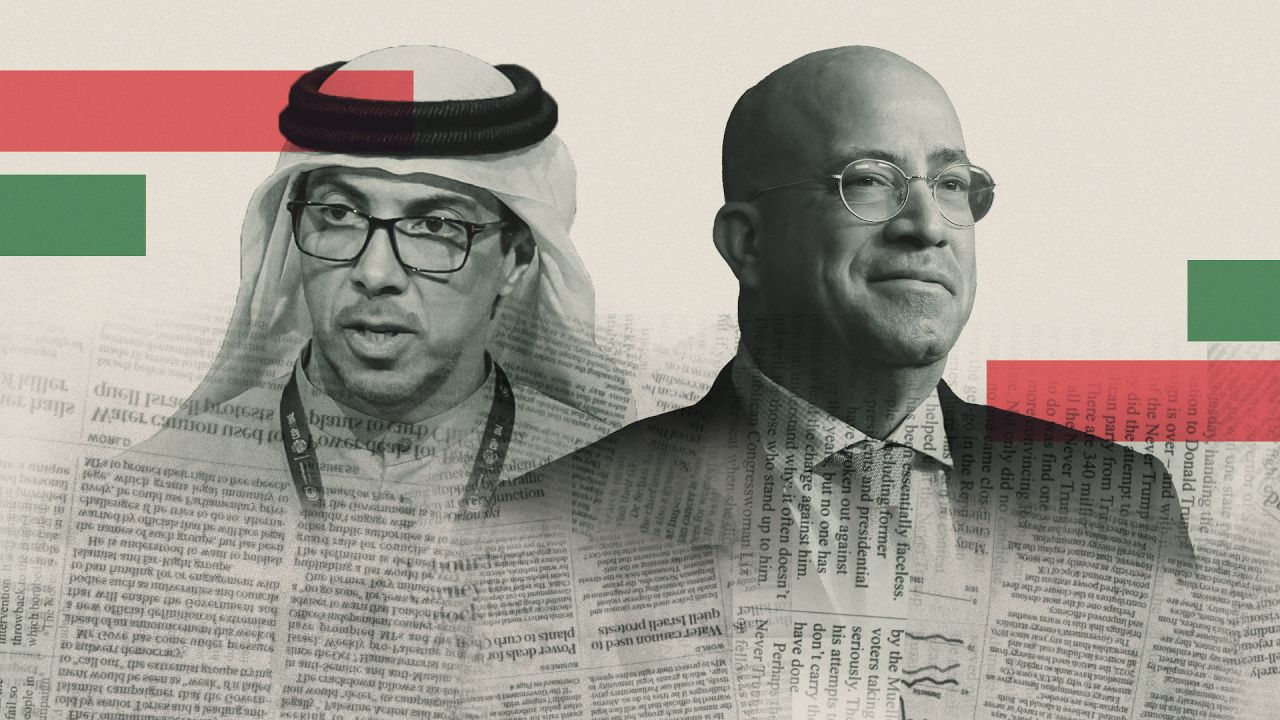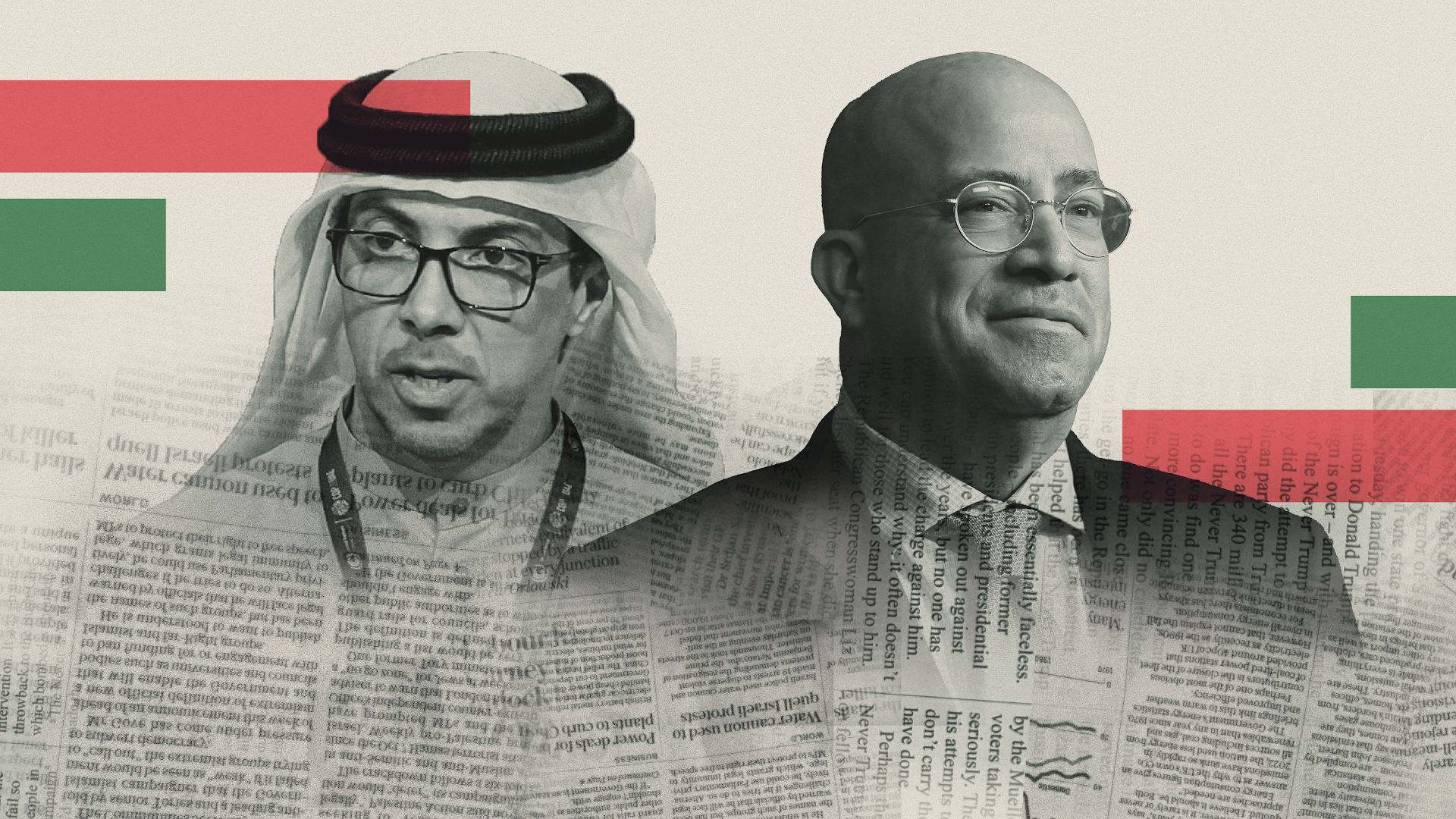Last week, a rebellion in the Lords drew a government pledge to ban foreign governments and their proxies from owning British newspapers and magazines. It was a historic moment for the defence of press freedom in the era of acquisitive, well-connected autocracies. It will have global significance. But the devil was always going to lie in the detail, and that will come in the third reading of the Digital Markets Bill due Tuesday.
The risk is that ministers may row back and allow the Emiratis to become part-owners of this magazine and the Telegraph by keeping a low stake of 5 per cent or even 1 per cent. This would still grant them the ownership status that they seek, albeit on a far-diminished basis. If so, would it matter? I think so, for the following reasons.
The is about principles, not percentages. The published text of the amendment says the government must act to prevent ‘foreign powers from gaining control or influence over newspaper enterprises’. Allowing the Emirati government the status of part-ownership – whether 1 per cent or 25 per cent – is allowing them to gain influence. This is not explicitly ruled out in the wording and the fuzziness may be deliberate.
There are good reasons for the government to fudge it: to keep the Emiratis sweet in hope of the £10 billion of investment Abu Dhabi promised, to invest in projects such as Sizewell C etc. You can see the temptation for ministers to say ‘let’s let them keep a small stake in the Daily Telegraph. It’s negligible. They would have no real power and it saves face, and keeps our chance of that cash. My concern is that the principle of autocratic part-ownership of UK media – which should not be entertained by any self-respecting democracy – may still be allowed, just to keep the Emiratis on board. Control? No, not at 2 per cent. But influence? Yes, even at such low levels.
A small stake could still put the Emiratis in the list of top five, even top three, shareholders of a newspaper. It could transform their status from ‘undemocratic regime allied with Vladimir Putin, to be scrutinised like any other autocracy’ to joint owners who may well have the editor on speed dial. It risks sending a chill down the spine of any publication: a young journalist who may (for example) be considering digging in to the deepening Emirati relationship with Putin could think twice. What if this upsets a senior manager? What if this marks you out as a troublemaker?
Readers, too, would have good reason to be suspicious if foreign governments start part-owning publications. As I recently wrote in my Telegraph column:
My fear about RedBird IMI buying The Spectator was not that we’d turn into an Arab Pravda, but that the magazine would be seen as part of this influence-laundering apparatus. For example, I happen to think Islam is often unfairly maligned in this country and that recent reforms in Saudi Arabia are more impressive than are generally credited. But if I said so, and you know that Emiratis owned my magazine, would you take me seriously? Your suspicions would remain, quite rightly, if the Emirati government owned even 5 per cent. That’s why it’s important that Rishi Sunak’s new law does rule out minority shareholdings.
The Emirati game is not about control but ‘influence laundering’. This is a post-2008 crash trend whereby cash-rich autocracies seek to build a portfolio of influence by part-ownership, or funnelling cash into front organisations. Sheikh Mansour’s IMI was providing 75 per cent of the funding for the joint venture with RedBird. Jeff Zucker, former president of CNN and current head of RedBird IMI, would be the face of it. That ended up being a bit too obvious. Zucker claimed that IMI was not at all an Emirati government project but a private one that just happened to be run by the deputy prime minister of the UAE. This proved unconvincing.
Tina Stowell’s amendment – and Robert Jenrick’s proposed rebellion in parliament – stopped outright RedBird IMI ownership but that was on principle. Thangam Debbonaire, the shadow culture secretary, was speaking on principle when she said that foreign government ownership of newspapers was incompatible with press freedom. Quite evidently, this goes for part-ownership, too. It would give the Emiratis a favour to trade in, or the ability to enter a newspaper’s office with the status of a part-owner.
As Baroness Stowell said in the Lords, it’s important that any new law does not bar the $1.6 trillion(!) government pension fund of Norway, for example, from investing in UK media. Same for pension funds of Japan, Netherlands etc. Such funds (list here) are not used as tools for their government’s foreign policy. Baroness Stowell calls ‘indirect foreign-state passive investment’ and, in my view don’t pose a risk. Limiting their stake in media firms to 5 per cent would be fairly harmless as none of these government pension funds want to go above this in a media investment.
Baroness Stowell is optimistic that the door won’t be left open for minority stakes by foreign powers:-
I’ve been assured – and will ask the minister to repeat it from the despatch box this week – that anyone blocked by the definition of foreign power in the government’s amendments on the face of the Bill will not qualify for the exempt category to be set out in secondary legislation. In my view, the threshold for indirect foreign-state passive investment by the likes of sovereign wealth or state pension funds in the UK news industry – which is important economically to the news industry – should be set at 5 per cent, and that’s what I’ve made clear to the government.
My ideal figure for the maximum ‘foreign power’ stake is zero. But I can see why all this is sensitive for the Tories. The Emiratis have turned out to have strong Tory contacts: Sheikh Mansour had not one but two former Tory chancellors acting for RedBird IMI in this deal (Nadhim Zahawi and George Osborne). David Cameron, now Foreign Secretary, was actually living in Abu Dhabi last year. In my view, this is bit much and ministers should be banned from ever working for any foreign power. This would allay concerns about ministers making decisions now with a view to their post-politics career. It’s a clear source of potential conflict .
Parliament has acted to defend press freedom – and so far, it has worked. So well that you almost expect there to some last-minute backsliding. Baroness Stowell, who has led this campaign with flair and precision, has said she will make sure this week and ask questions. We’ll bring you more on Tuesday as the debate unfolds.
UPDATE
Tina Stowell has posted the below. If she is right, it’s very good news – and Sunak will have been every bit as good as his word. Here’s hoping.
My understanding is that any foreign power as defined by Govt’s new amendment will be 100% blocked from owning, controlling or influencing a UK newspaper or magazine. They can’t have even 0.01%. No exemption category will be allowed unless it is passed by Parliament in a piece of secondary legislation still to be presented. That won’t come forward until after the primary law is passed (in a few weeks).
So, once the new primary law is passed, there will be no exemption for anyone until Parliament approves such an exemption. The devil will be in the detail.
My expectation – which I’ll seek confirmation of during Tuesday’s Third Reading – is that the exemption in secondary legislation will not be for those entities or individuals disqualified by the foreign power definition in primary legislation; and such entities won’t be allowed to re-emerge or restructure to qualify. The exemption is only for the kind of well-established indirect foreign-state investors that already make passive investments in our news industry (eg, the Norwegian Sovereign Investment Fund).
Also, for the news industry only, those kind of passive investors (ie, the sovereign wealth funds that are not state-controlled) will be capped – and I’ve proposed that cap is not higher than 5%. All of this is what I’ll be seeking Ministerial confirmation of from the despatch on Tuesday, and assuming that confirmation is given, will make sure is delivered in the secondary legislation to follow.








Comments